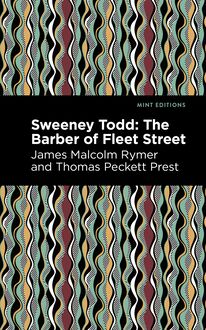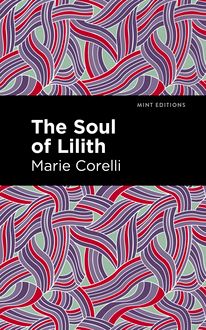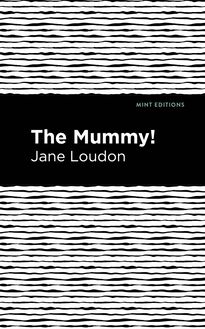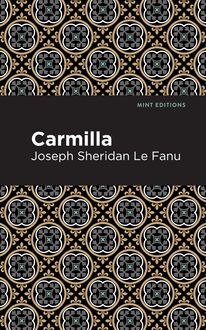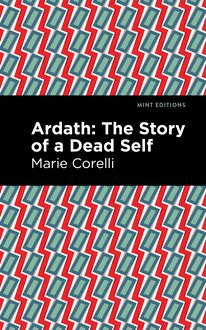-
 Univers
Univers
-
 Ebooks
Ebooks
-
 Livres audio
Livres audio
-
 Presse
Presse
-
 Podcasts
Podcasts
-
 BD
BD
-
 Documents
Documents
-
- Cours
- Révisions
- Ressources pédagogiques
- Sciences de l’éducation
- Manuels scolaires
- Langues
- Travaux de classe
- Annales de BEP
- Etudes supérieures
- Maternelle et primaire
- Fiches de lecture
- Orientation scolaire
- Méthodologie
- Corrigés de devoir
- Annales d’examens et concours
- Annales du bac
- Annales du brevet
- Rapports de stage
La lecture à portée de main
Vous pourrez modifier la taille du texte de cet ouvrage
Découvre YouScribe en t'inscrivant gratuitement
Je m'inscrisDécouvre YouScribe en t'inscrivant gratuitement
Je m'inscrisEn savoir plus
Vous pourrez modifier la taille du texte de cet ouvrage
En savoir plus

Description
Melmoth the Wanderer (1820) is a novel by Charles Maturin. Written toward the end of Maturin’s life, Melmoth the Wanderer was the author’s fifth and most successful novel. Inspired by the story of the Wandering Jew and the Faustian legend, the novel is a powerful Gothic romance divided into nested stories, each one delving deeper into the mystery of Melmoth’s life. Often interpreted for its criticisms of 19th century Britain and the Catholic Church, Melmoth the Wanderer is considered one of the greatest novels of the Romantic era. Following a lead from a story told at his uncle’s funeral, John Melmoth, a student from Dublin, begins an obsessive search into his family’s mysterious past. Little is known about the man called “Melmoth the Traveller.” A portrait dated 1646 suggests that he has been dead for over a century. Despite this, he discovers a manuscript from a stranger named Stanton who claims to have seen Melmoth on several occasions over the past few decades. John tracks him down and finds him at a mental institution, where he was placed when his obsession with Melmoth was deemed insanity. Disturbed, John burns the portrait and attempts to put his questions behind him. Soon, he begins having visions of his own. Melmoth the Wanderer is a story of mystery and terror that engages with timeless themes of faith, fantasy, and the thin line between dreams and life. With a beautifully designed cover and professionally typeset manuscript, this edition of Charles Maturin’s Melmoth the Wanderer is a classic of Irish literature reimagined for modern readers.
Sujets
Informations
| Publié par | Mint Editions |
| Date de parution | 21 mai 2021 |
| Nombre de lectures | 0 |
| EAN13 | 9781513287843 |
| Langue | English |
| Poids de l'ouvrage | 2 Mo |
Informations légales : prix de location à la page 0,0550€. Cette information est donnée uniquement à titre indicatif conformément à la législation en vigueur.
Extrait
Melmoth the Wanderer
Charles Maturin
Melmoth the Wanderer was first published in 1820.
This edition published by Mint Editions 2021.
ISBN 9781513282824 | E-ISBN 9781513287843
Published by Mint Editions®
minteditionbooks .com
Publishing Director: Jennifer Newens
Design & Production: Rachel Lopez Metzger
Project Manager: Micaela Clark
Typesetting: Westchester Publishing Services
C ONTENTS V OLUME I I II III IV V V OLUME II VI VII VIII IX X XI V OLUME III XII XIII XIV XV XVI XVII XVIII XIX XX XXI XXII V OLUME IV XXIII XXIV XXV XXVI XXVII XXVIII XXIX XXX XXXI XXXII XXXIII XXXIV XXXV XXXVI XXXVII XXXVIII XXXIX
VOLUME I
I
Alive again? Then show me where he is;
I’ll give a thousand pounds to look upon him.
— S HAKESPEARE
In the autumn of 1816, John Melmoth, a student in Trinity College, Dublin, quitted it to attend a dying uncle on whom his hopes for independence chiefly rested. John was the orphan son of a younger brother, whose small property scarce could pay John’s college expences; but the uncle was rich, unmarried, and old; and John, from his infancy, had been brought up to look on him with that mingled sensation of awe, and of the wish, without the means to conciliate, (that sensation at once attractive and repulsive), with which we regard a being who (as nurse, domestic, and parent have tutored us to believe) holds the very threads of our existence in his hands, and may prolong or snap them when he pleases.
On receiving this summons, John set immediately out to attend his uncle.
The beauty of the country through which he travelled (it was the county Wicklow) could not prevent his mind from dwelling on many painful thoughts, some borrowed from the past, and more from the future. His uncle’s caprice and moroseness,—the strange reports concerning the cause of the secluded life he had led for many years,—his own dependent state,—fell like blows fast and heavy on his mind. He roused himself to repel them,—sat up in the mail, in which he was a solitary passenger,—looked out on the prospect,—consulted his watch;—then he thought they receded for a moment,—but there was nothing to fill their place, and he was forced to invite them back for company. When the mind is thus active in calling over invaders, no wonder the conquest is soon completed. As the carriage drew near the Lodge, (the name of old Melmoth’s seat), John’s heart grew heavier every moment.
The recollection of this awful uncle from infancy,—when he was never permitted to approach him without innumerable lectures,— not to be troublesome ,—not to go too near his uncle,—not to ask him any questions,—on no account to disturb the inviolable arrangement of his snuff-box, hand-bell, and spectacles, nor to suffer the glittering of the gold-headed cane to tempt him to the mortal sin of handling it,—and, finally, to pilot himself aright through his perilous course in and out of the apartment without striking against the piles of books, globes, old newspapers, wig-blocks, tobacco-pipes, and snuff-cannisters, not to mention certain hidden rocks of rat-traps and mouldy books beneath the chairs,—together with the final reverential bow at the door, which was to be closed with cautious gentleness, and the stairs to be descended as if he were “shod with felt.”—This recollection was carried on to his school-boy years, when at Christmas and Easter, the ragged poney, the jest of the school, was dispatched to bring the reluctant visitor to the Lodge,—where his pastime was to sit vis-a-vis to his uncle, without speaking or moving, till the pair resembled Don Raymond and the ghost of Beatrice in the Monk,—then watching him as he picked the bones of lean mutton out of his mess of weak broth, the latter of which he handed to his nephew with a needless caution not to “take more than he liked,”—then hurried to bed by day-light, even in winter, to save the expence of an inch of candle, where he lay awake and restless from hunger, till his uncle’s retiring at eight o’clock gave signal to the governante of the meagre household to steal up to him with some fragments of her own scanty meal, administering between every mouthful a whispered caution not to tell his uncle. Then his college life, passed in an attic in the second square, uncheered by an invitation to the country; the gloomy summer wasted in walking up and down the deserted streets, as his uncle would not defray the expences of his journey;—the only intimation of his existence, received in quarterly epistles, containing, with the scanty but punctual remittance, complaints of the expences of his education, cautions against extravagance, and lamentations for the failure of tenants and the fall of the value of lands. All these recollections came over him, and along with them the remembrance of that last scene, where his dependence on his uncle was impressed on him by the dying lips of his father.
“John, I must leave you, my poor boy; it has pleased God to take your father from you before he could do for you what would have made this hour less painful to him. You must look up, John, to your uncle for every thing. He has oddities and infirmities, but you must learn to bear with them, and with many other things too, as you will learn too soon. And now, my poor boy, may He who is the father of the fatherless look on your desolate state, and give you favour in the eyes of your uncle.” As this scene rose to John’s memory, his eyes filled fast with tears, which he hastened to wipe away as the carriage stopt to let him out at his uncle’s gate.
He alighted, and with a change of linen in a handkerchief, (his only travelling equipment), he approached his uncle’s gate. The lodge was in ruins, and a barefooted boy from an adjacent cabin ran to lift on its single hinge what had once been a gate, but was now a few planks so villainously put together, that they clattered like a sign in a high wind. The stubborn post of the gate, yielding at last to the united strength of John and his barefooted assistant, grated heavily through the mud and gravel stones, in which it left a deep and sloughy furrow, and the entrance lay open. John, after searching his pocket in vain for a trifle to reward his assistant, pursued his way, while the lad, on his return, cleared the road at a hop step and jump, plunging through the mud with all the dabbling and amphibious delight of a duck, and scarce less proud of his agility than of his “sarving a gentleman.” As John slowly trod the miry road which had once been the approach, he could discover, by the dim light of an autumnal evening, signs of increasing desolation since he had last visited the spot,—signs that penury had been aggravated and sharpened into downright misery. There was not a fence or a hedge round the domain: an uncemented wall of loose stones, whose numerous gaps were filled with furze or thorns, supplied their place. There was not a tree or shrub on the lawn; the lawn itself was turned into pasture-ground, and a few sheep were picking their scanty food amid the pebble-stones, thistles, and hard mould, through which a few blades of grass made their rare and squalid appearance.
The house itself stood strongly defined even amid the darkness of the evening sky; for there were neither wings, or offices, or shrubbery, or tree, to shade or support it, and soften its strong harsh outline. John, after a melancholy gaze at the grass-grown steps and boarded windows, “addressed himself” to knock at the door; but knocker there was none: loose stones, however, there were in plenty; and John was making vigorous application to the door with one of them, till the furious barking of a mastiff, who threatened at every bound to break his chain, and whose yell and growl, accompanied by “eyes that glow and fangs that grin,” savoured as much of hunger as of rage, made the assailant raise the siege on the door, and betake himself to a well-known passage that led to the kitchen. A light glimmered in the window as he approached: he raised the latch with a doubtful hand; but, when he saw the party within, he advanced with the step of a man no longer doubtful of his welcome.
Round a turf-fire, whose well-replenished fuel gave testimony to the “master’s” indisposition, who would probably as soon have been placed on the fire himself as seen the whole kish emptied on it once, were seated the old housekeeper, two or three followers , ( i.e. people who ate, drank, and lounged about in any kitchen that was open in the neighbourhood, on an occasion of grief or joy, all for his honor’s sake, and for the great rispict they bore the family), and an old woman, whom John immediately recognized as the doctress of the neighbourhood,—a withered Sybil, who prolonged her squalid existence by practising on the fears, the ignorance, and the sufferings of beings as miserable as herself. Among the better sort, to whom she sometimes had access by the influence of servants, she tried the effects of some simples, her skill in which was sometimes productive of success. Among the lower orders she talked much of the effects of the “evil eye,” against which she boasted a counter-spell, of unfailing efficacy; and while she spoke, she shook her grizzled locks with such witch-like eagerness, that she never failed to communicate to her half-terrified, half-believing audience, some portion of that enthusiasm which, amid all her consciousness of imposture, she herself probably felt a large share of; still, when the case at last became desperate, when credulity itself lost all patience, and hope and life were departing together, she urged the miserable patient to confess “ there was something about his heart ;” and when this confession was extorted from the weariness of pain and the ignorance of poverty, she nodded and muttered so mysteriously, as to convey to the bystanders, that she had had difficulties to contend with which were invincible by human power. When there was no pretext, from indisposition, for
-
 Univers
Univers
-
 Ebooks
Ebooks
-
 Livres audio
Livres audio
-
 Presse
Presse
-
 Podcasts
Podcasts
-
 BD
BD
-
 Documents
Documents
-
Jeunesse
-
Littérature
-
Ressources professionnelles
-
Santé et bien-être
-
Savoirs
-
Education
-
Loisirs et hobbies
-
Art, musique et cinéma
-
Actualité et débat de société
-
Jeunesse
-
Littérature
-
Ressources professionnelles
-
Santé et bien-être
-
Savoirs
-
Education
-
Loisirs et hobbies
-
Art, musique et cinéma
-
Actualité et débat de société
-
Actualités
-
Lifestyle
-
Presse jeunesse
-
Presse professionnelle
-
Pratique
-
Presse sportive
-
Presse internationale
-
Culture & Médias
-
Action et Aventures
-
Science-fiction et Fantasy
-
Société
-
Jeunesse
-
Littérature
-
Ressources professionnelles
-
Santé et bien-être
-
Savoirs
-
Education
-
Loisirs et hobbies
-
Art, musique et cinéma
-
Actualité et débat de société
- Cours
- Révisions
- Ressources pédagogiques
- Sciences de l’éducation
- Manuels scolaires
- Langues
- Travaux de classe
- Annales de BEP
- Etudes supérieures
- Maternelle et primaire
- Fiches de lecture
- Orientation scolaire
- Méthodologie
- Corrigés de devoir
- Annales d’examens et concours
- Annales du bac
- Annales du brevet
- Rapports de stage
